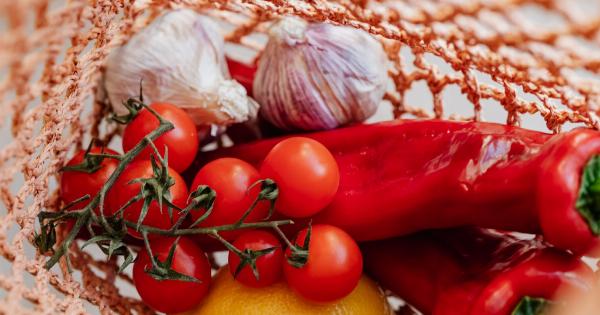Inflammation is a natural process in our body that helps us fight off infections and injuries. However, chronic inflammation can lead to various health issues, such as arthritis, heart disease, and cancer.
While many factors contribute to inflammation, our diet plays a significant role. Some foods can trigger or exacerbate inflammation, while others can reduce it. Here are six inflammatory foods that you should avoid if you want to maintain your health and well-being.
1. Processed Foods
Processed foods are one of the biggest culprits when it comes to inflammation. These foods are typically high in refined carbohydrates, sugar, salt, and unhealthy fats, which can increase inflammation in your body.
Additionally, processed foods often contain preservatives, additives, and artificial colors, which can further activate your immune system and cause interference in your body’s natural function.
Examples of processed foods include fast food, frozen meals, packaged snacks, soda, and other sugary drinks. Instead of these, try to focus on fresh, whole foods.
Vegetables, fruits, nuts, seeds, and lean protein sources such as chicken, fish and turkey are all good options for an anti-inflammatory diet.
2. Animal Products
Animal products like red meat and dairy products are high in saturated fats that can trigger inflammation in your body.
These foods can increase your body’s production of arachidonic acid, a type of omega-6 fatty acid that promotes inflammation and can worsen conditions like arthritis and asthma.
However, it is important to note that not all animal products are inflammatory. Omega-3-rich sources such as salmon, sardines, and other fatty fish, as well as plant-based proteins such as legumes and tofu, are anti-inflammatory.
Plant-based alternatives to dairy, such as almond milk and soy milk, also provide a healthier option for those looking to make the switch.
3. Gluten
Gluten is a protein found in wheat, rye, and barley that can cause inflammation in people with celiac disease, gluten sensitivity, or wheat allergies.
However, even those who do not have these conditions may benefit from avoiding gluten as it can cause systemic inflammation that can lead to a host of health problems.
You can opt for gluten-free alternatives such as rice, quinoa, and potatoes to reduce your risk of inflammation. However, be wary of gluten-free processed foods which can be high in sugar and other inflammatory ingredients.
4. Vegetable and Seed Oils
Vegetable and seed oils, such as corn, soybean, and sunflower oil, are high in omega-6 fatty acids, which promote inflammation.
These oils are common in processed foods, snacks, and baked goods as they are relatively inexpensive and have a long shelf life. Unfortunately, these oils are also commonly used in fast food restaurants, leaving little escape against their inflammatory response.
Instead, use healthy fats such as olive oil, avocado oil, and coconut oil when cooking. These oils contain anti-inflammatory compounds that can help reduce inflammation.
5. Refined Carbohydrates
Refined carbohydrates, such as white bread, pasta, and crackers, are simple carbohydrates that break down into sugar quickly in your body, resulting in an increased production of insulin.
When insulin is released in the body, it stimulates the production of inflammatory compounds that increase inflammation in your body.
Eating whole grains, such as brown rice, quinoa, and whole wheat, instead of refined carbohydrates, can help reduce the inflammatory response.
6. Artificial Sweeteners
Artificial sweeteners like aspartame and sucralose are often used in sugar-free drinks, snacks, and other processed foods. While they are marketed as a healthier alternative to sugar, they can actually promote inflammation in your body.
Avoid consuming foods that contain artificial sweeteners and opt for natural sweeteners such as honey, maple syrup, and stevia instead.
In Conclusion
While some foods can trigger or exacerbate inflammation, others can help reduce it. Focus on eating a whole-foods based diet that is high in antioxidants, fiber, and healthy fats, and low in processed, sugary, and inflammatory foods.
By making these changes to your diet, you may be able to reduce your risk of chronic illnesses and achieve optimal health.






























